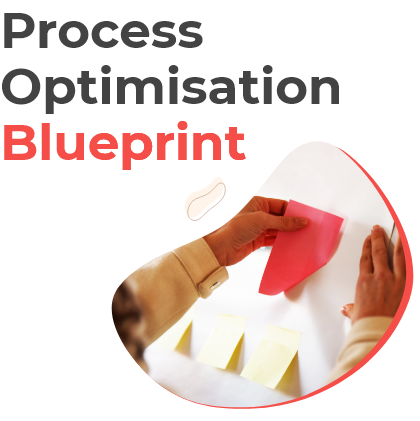The Importance of Organisational Small Business Workflow

Small Business Definition
Before we look into the importance of organisational workflow. We must know what is a small-scale business. A small-scale business is small in size compared to other businesses.
A small-scale business may be a single person or small group of people who are working together cooperatively, selling goods and services on their own without the need for outside investment.
These businesses are independently owned organisations that require less capital, workforce and machinery to operate, thus making them suitable for operating on a small scale to serve local communities and providing profits to the owners directly.
Limited by size and revenue, these organisations are termed as small businesses depending upon the industry that they belong to.
Workflow Definition
Workflow refers to the interaction between a set of tasks that are grouped chronologically into processes and the group of people and resources that are required to complete these tasks to accomplish a given goal in an organisation.
It describes the steps in a business work process through which a piece of work passes from initiation to completion and prescribes the manner in which they can be executed and automated as per a set of procedural rules.
Business organisations across the world use organisational workflow to coordinate tasks and improve organisational efficiency, responsiveness and profitability and avoid bottlenecks. It is a common assumption that workflow and workflow management are important only for large-scale businesses.
However, with the changing times and an evolving business landscape, business proprietors have come to realise the importance of having a workflow and its management in both small-scale and large-scale businesses.
Organisational Workflow
Organisational workflow is a system of rules, procedures and protocols that guide the movement of work through an organisation. These can be executed manually or automated as per a set of procedural rules.
Business organisations across the world use organisational workflow to coordinate tasks and improve organisational efficiency, responsiveness and profitability and avoid bottlenecks.
Small businesses often have small-scaled organisational workflows. However this small workflow can make the business susceptible to a bottleneck in any one stage of production, which could lead to an entire backlog and ultimately loss of revenue.
When small organisations such as these set out their organisational workflow systems they need to ascertain how much time it will take for small business owner to monitor business processes within the organisation, how it would impact team dynamic and client service, and whether there are any bottlenecks within the small business.
So, why is it important to have a small business workflow?
If you think that only large organisations should have a proper workflow in place, you’re wrong. Workflow is the backbone of organisational success and a key indicator for small businesses on how much potential they have in terms of growth, productivity and profitability
It is important to have workflows in place for many reasons. The first reason is that it can be very difficult to keep track of everything if there isn’t any form of organisation. This can lead to small business owners missing deadlines, not being able to deliver on promises, and even losing money due the incomplete tasks that they are neglecting.
Another major issue with small businesses not having a workflow is that when things get busy, employees will become stressed because they don’t know what their next task should be or how long it needs to take.
These issues usually arise from employees’ lack of understanding on the small business’s organisational workflows and procedures which makes them feel disorganised and unproductive.
Reasons why small businesses need to have strong workflow management
Workflow management is crucial for small businesses because it can reduce the number of mistakes and keep everything running smoothly.
Interesting Read: Business Process Management – How It Improves Operations
If you have an organised workflow, your small business will be more efficient in accomplishing tasks which means there is a higher chance that they’ll complete them on time as well.
Management software and process automation are now commonly used even by small businesses, here are some reasons why:
Creation of value
Creation of a workflow gives an insight into the business processes of an organisation and cuts down on tons of unnecessary and redundant tasks. This creates value for a business, since employees can now focus on important tasks and contribute to the business instead of wasting time on less important tasks.
Structuring of processes
Creating a workflow helps the organisation map its processes. This helps in integrating different processes with one another and helps personnel establish their responsibilities well in advance. Further, this ensures cooperation among the various levels of staff in the organisation and helps them maximise their output efficiently.
For more on how to structure your workflow, see operating procedures maximiser:

Access to information
Creation of a workflow breaks down the barriers within a company and ensures that any information that is obtained is documented thoroughly and is passed on to everybody in the organisation. Such information helps one design processes that add value, thereby increasing the performance of the overall business.
Digital trails
Workflow replaces the task of documenting a business through the paper-based file system by converting the documentation into digital files, automating routine tasks and sending alerts to personnel to act from time to time using the cloud.
Increased efficiency
By streamlining and automating repetitive business tasks, workflow leaves little room for redundancies, thus minimizing errors and increasing overall efficiency.
Increased accountability
An organisational workflow identifies tasks to be completed, assigns them to the right personnel and sets a target to complete said tasks. This helps in ensuring accountability on the part of the employees and utilises their individual capabilities to their full potential without micromanaging the staff.
Insights
Having a workflow gives the management an insight into the working of the organisation at any point of time and helps them gauge the ability of their organisation to meet its deadlines. Such insights aid them in decision making and help them take decisions that will be beneficial for the company.
Measurement of performance
Workflow helps the management keep track of the various business processes, monitor their performance and evaluate them based on the results obtained. By comparing the results obtained with that of the industrial standards, the organisation can learn where they stand in the market and take measures, if any, to improve their performance.
Improved customer service
The success of a business lies with its customers. A highly successful business is one that can attract potential customers to expand its consumer base, while retaining its existing customers at the same time. A good workflow helps a business provide better service to its customers, by creating new strategies to cater to their needs and handling their complaints in a more efficient manner.
Boombirds is one such ergonomic business management tool that caters all the requirements that is needed to run a business successfully.
Are you tired of…Messy, manual processes that can't be scaled?
We work with operations leaders looking to digitally transform their manual back-office processes and procedures.
We combine your existing business processes with our software, plus decades of enterprise process re-engineering and change management experience to quickly scale and see the results you are looking for.





